The Black Widow is the sub-surface sister to
her brother the Hard-Hackle Spider, a top-water
arachnid. When the surface activity slows down,
try the Black Widow for non-stop action underwater!
The Black Widow's legs are formed using a "reverse
hackling" technique. This method, coupled with
good quality genetic hen hackle, gives her unbelievable
life-like action, whether she is just slowly sinking
down, being nudged along in short twitches or just
floating with the current like her cousins, the
soft-hackles. The red bead takes on different hues
depending on the light and depth. So if you're ready,
let's tie this lethal beauty!
Materials List:
Hook: Mustad 3906B, sizes 6-14.
Thread: 6/0 or 8/0 black.
Thorax: Glass or Plastic Bead, Red.
Body: Ultra-Chenille, Black.
Hackle: Genetic Hen, Black.
Instructions - Black Widow:
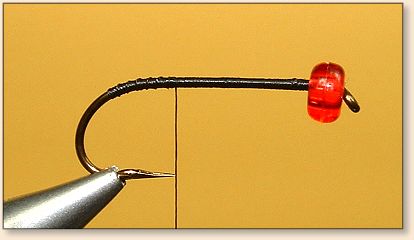
1. Slip the bead on the hook and position it
at the eye out of the way for now. Lay a thread
base along the length of the hook shank starting
just behind the bead to the hook bend.
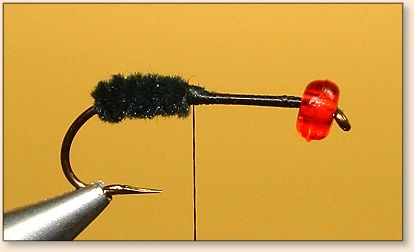
2. Tie in the chenille and advance it toward the
hook eye about one-third the length of the hook shank.
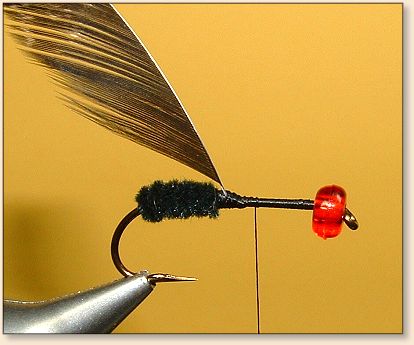
3. Select an appropriate sized genetic hen hackle
(saddle or cape). Tie the feather in by the base,
with the concave (cupped, dull) side facing the hook
bend. Strip off the barbs on the side of the feather
farthest away from you (other side of hook).
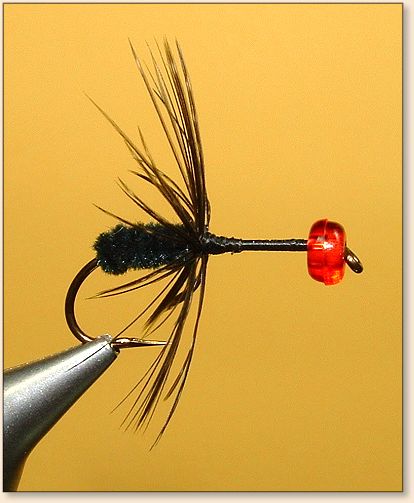
4. Wind the hackle away from you, tie off, trim and
whip finish a couple of turns to secure the thread
and cut it.
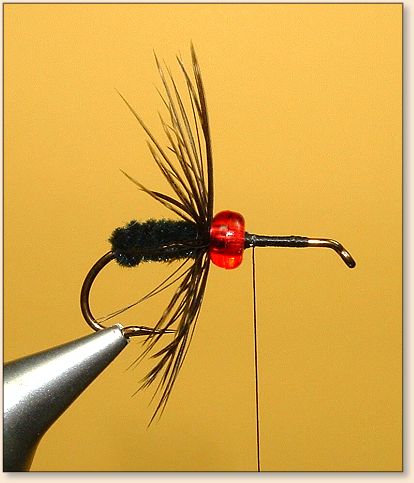
5. Slide the bead snugly against the hackle and
build up a small hump ahead of the bead to secure
it in place on the hook shank.
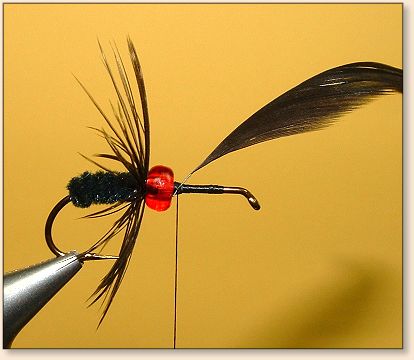
6. Tie in the second genetic hen hackle by the
base, directly behind the bead, with the concave
(cupped, dull) side facing the hook EYE. Strip
off the barbs on the side of the feather farthest
away from you (other side of the hook).
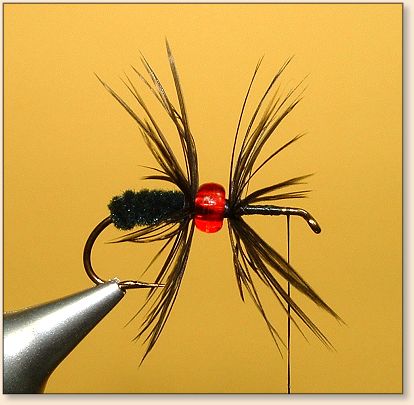
7. Using a "reverse hackling" technique, wind the
feather away from you, trim and secure it with a
couple of half hitches.
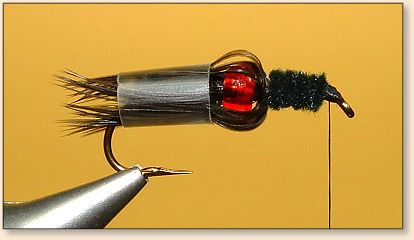
8. Slip a "soda straw" hackle guard over the hackle.
Tie in the chenille to cover the front third of the
hook shank.
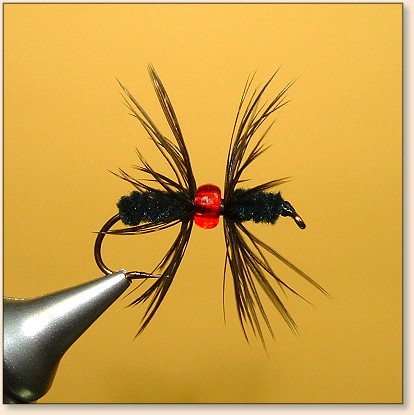
9. Tie off the chenille, trim, whip finish, apply
head cement (if desired), remove the hackle guard,
and Viola! The Black Widow is ready to fish!
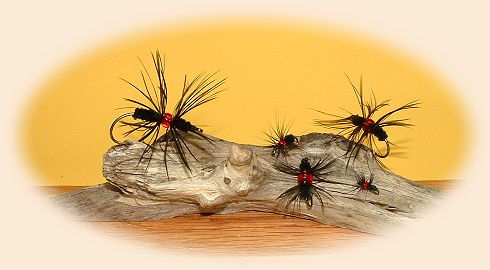
How to Fish the Black Widow:
The Black Widow is best fished when the surface action
has slowed down. She can be fished like a traditional
soft-hackle, or allowed to slowly sink ever so
tantalizingly or you can strip her in with little
twitches, pausing ever so momentarily between tugs.
She can be tied in as large as 1/0 for largemouth
bass (black widows are not small spiders!) and as
small as size 18 for trout. Use fine chenille in
the larger sizes and floss or just thread in the
smaller sizes for the body. Use your imagination
and available feathers to make Brown Widows, Dun
Widows, Grizzly Widows, and Grey Widows, but keep
the signature red bead!
With the Hard-Hackle Spider brothers playing on the
surface and the Black Widow sisters frolicking below
the surface, these deadly duos may be just the ticket
to a successful day! ~ Richard
About Richard:
Richard Komar lives in Plano, Texas and is a member
of the Dallas FlyFishers and The Great American Bass Club.



